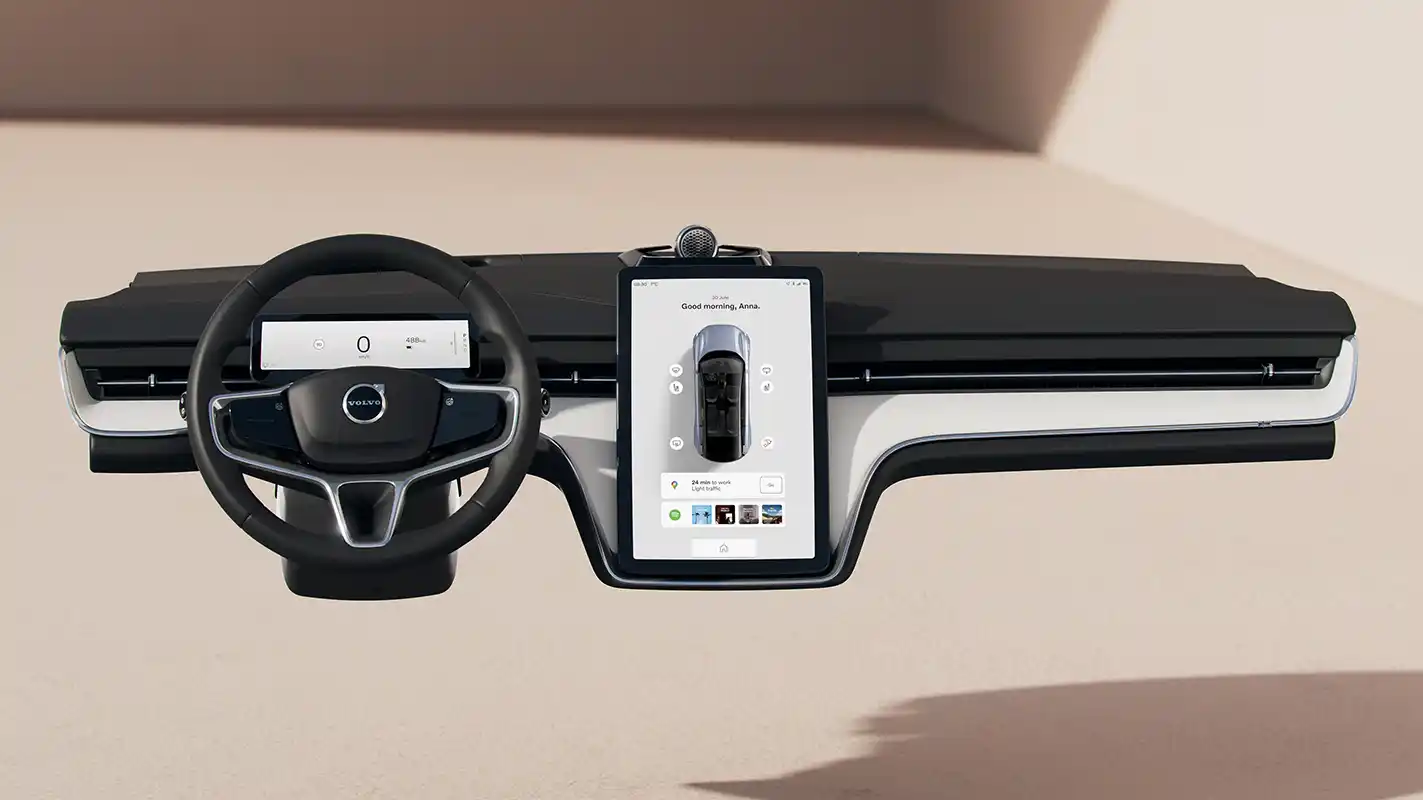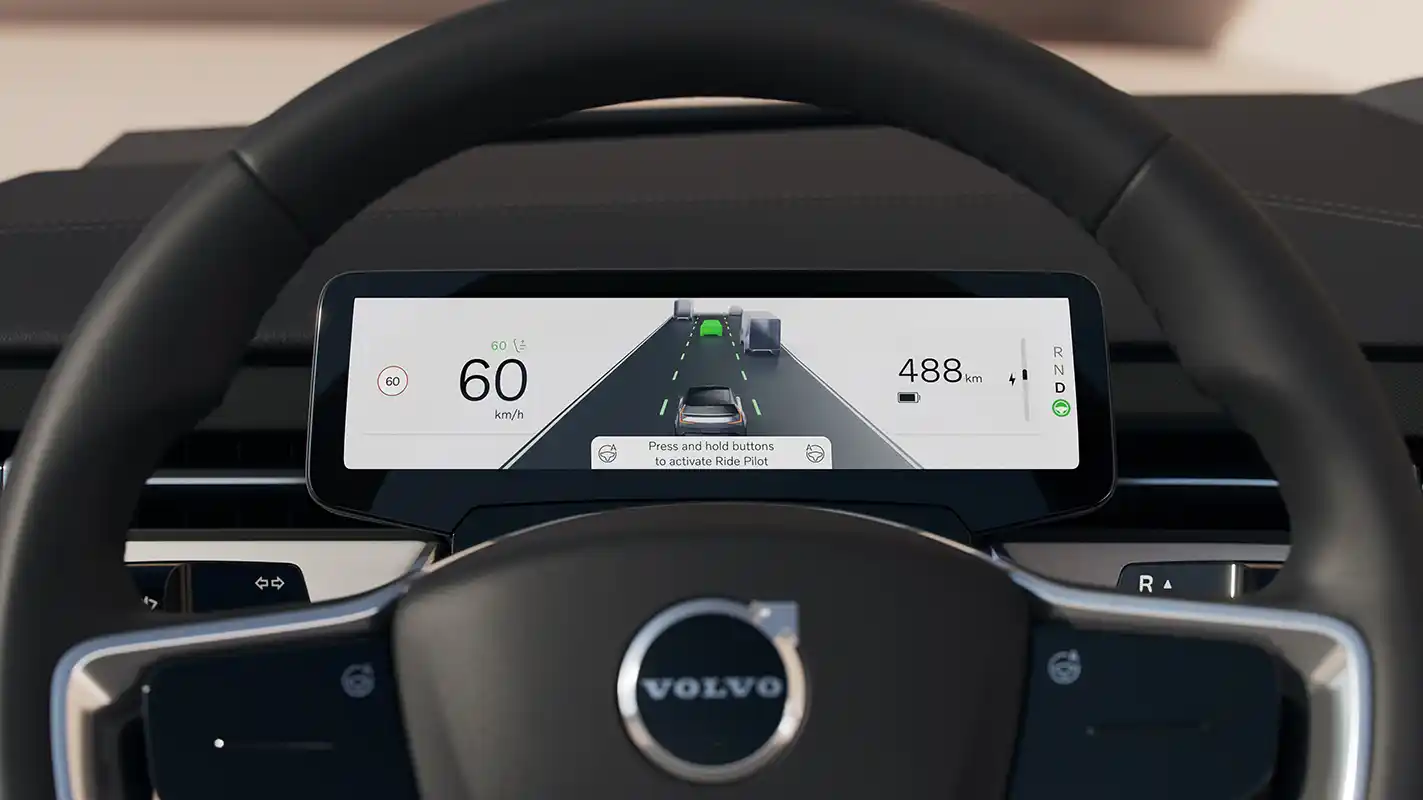 If you’ve ever asked a phone or computer “What do you want me to do?” with a tinge of despair in your voice, you know how confusing it can be when communication with a piece of technology breaks down.
If you’ve ever asked a phone or computer “What do you want me to do?” with a tinge of despair in your voice, you know how confusing it can be when communication with a piece of technology breaks down.
Imagine what could happen if such a breakdown happens in a car as you transition between manual, assisted and autonomous driving modes. It’s safe to say that these are situations where uncertainty should be avoided, no matter what.
Adding by subtracting
Today’s cars are loaded with new capabilities, functions and technologies. We want these features to make your life easier and safer, rather than creating more distractions or confusion. That’s why it’s essential that the car gives clear and contextual information.
With that in mind, we’ve made it a top priority to make the transition from manual to assisted driving modes (and in the future, autonomous driving) in our cars effortless and intuitive. The same goes for accessing features via the car’s screens: we want to present what you need in a simplified way.
In the Volvo EX90, our upcoming fully electric flagship SUV, a large centre screen gives you quick access to navigation, media and phone, as well as controls and other common actions. Depending on whether you’re parked or driving, or on a phone call, a special contextual bar will suggest the actions that make the most sense for the specific situation you’re in.
For more driving-focused information, such as directions, current speed and range info, there’s a second, smaller screen right behind the steering wheel. This is also where the car contextualises the change from one mode to another, making sure you know what to expect from the car – and what the car expects from you.
“It’s all about providing you with the right information at the right time,” says Thomas Stovicek, head of UX at Volvo Cars. “We want your driving experience to be focused, simple and safe. Since the car also understands its surroundings and you better than ever before, we can create an even safer situation by reducing mode confusion, distraction and information overload.”
How Volvo cars create trust
By combining the car’s exterior and interior sensing with in-house developed software and the car’s central computing power, we gain a new level of understanding of you and the world around you. The ambition is that the car should be able to read each situation and provide you with contextual information based on that input.
This means that when you drive, we support you. Our state-of-the-art sensor set gives a full 360-degree view of the car’s surroundings, allowing the car to react to things going on around it proactively, even when the assisted driving mode is inactive.
When you’re in assisted driving, we drive with you. The car will continuously let you know what it’s currently seeing, and what information it’s acting on. Beyond providing steering support and helping you keep a consistent speed, the mode assists you while changing lanes.
The Volvo EX90 will be hardware-ready for unsupervised autonomous driving, meaning that in the future the car can ultimately be able to drive for you. Our contextual user interface is designed to make the transition between the different driving modes as predictable and smooth as possible.

